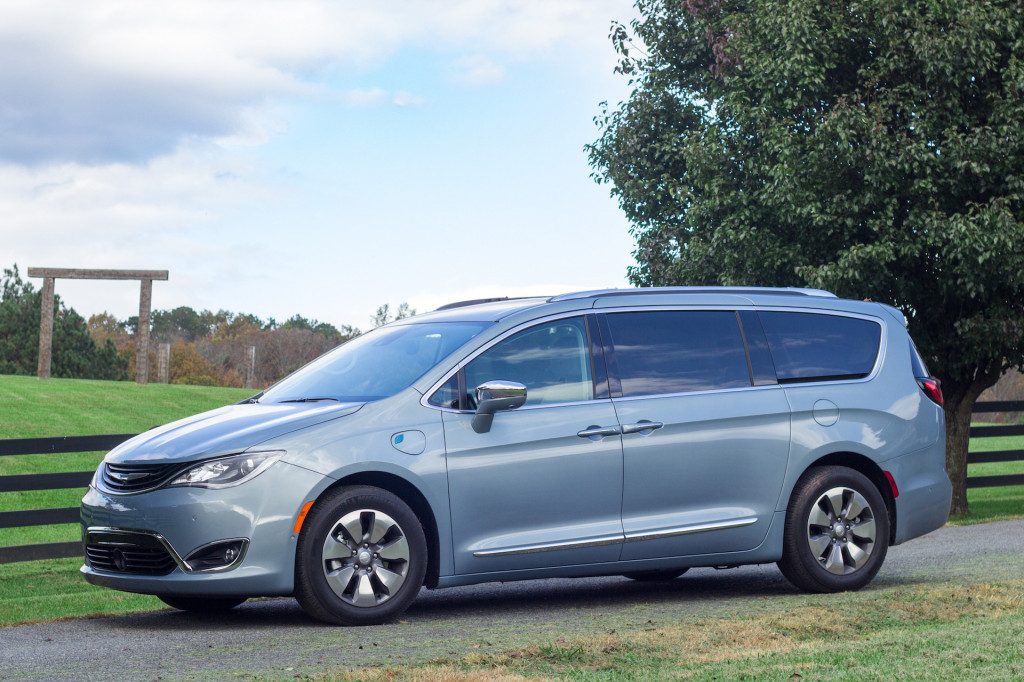Cumulative Canadian plug-in electric vehicle sales surpassed 50,000 units in February, aided by the second-generation 2018 Nissan Leaf, which sold 179 units in its “rookie” month.
Unfortunately for the world’s best-selling plug-in electric vehicle (and third-best in Canada), its tally was beaten by both the Volkswagen e-Golf and the Chevrolet Bolt EV, which notched 180 units apiece.
The e-Golf enjoyed its best-ever monthly sales, more than doubling January’s 87 units, and far surpassing its prior best of 128, set last November.
DON'T MISS: U.S. plug-in electric car sales in Feb higher than Jan lows, still in winter doldrums
The battery-electric Chevy Bolt EV held steady from January’s 180 units. Meanwhile, the perennially market-leading Chevrolet Volt plug-in hybrid sold 305 units, up from 226 in January.
Its combined sales for January and February 2018 are running about even with those from the first two months of last year.

Plug-in electric car sales in Canada, February 2018
The Mitsubishi Outlander PHEV enjoyed 230 sales in its second full month of availability in Canada, easily topping its 174 sales oin January.
As consumer awareness grows, could the Outlander PHEV become the Volt’s toughest competition?
It starts with a higher sticker price (about CAD $42,000 versus the Volt’s CAD $39,000), and provincial rebates favor the Volt more heavily.
On the other hand, the plug-in hybrid Outlander is a SUV, while the Volt hails from the steadily declining hatchback-and-sedan segment.
In its first month of national availability, 135 Toyota Prius Prime plug-in hybrid hatchbacks were sold, more than tripling its Quebec-only January tally of 36.
Fellow Japanese juggernaut Honda sold 93 Clarity Plug-In Hybrids, while Korean carmaker Kia sold 46 Soul EVs and 4 Optima PHEVs.
Meanwhile, Volvo reported 13 sales of its XC60 T8 plug-in hybrid crossovers, the smaller of its two plug-in luxury SUV models.
READ THIS: Driving a Chevy Bolt EV electric car across Canada, all the way
Efforts have been made to estimate sales for other vehicles in the market, based on partial registration data,
Regrettably, their makers have not seen fit to supply data on sales of the Ford C-Max Energi, Ford Fusion Energi, and Hyundai Sonata PHEV sales are not provided.
As conveyed by a Ford representative: "I have looked into this and unfortunately we are not inclined to provide this level of detail for Canada. The numbers are very small, as you might imagine."

Tesla Model S at Cypress Mountain, British Columbia, Canada
Countdown to 100,000
The strong showings by new entrants mean that February’s interim market share has crossed 1 percent, with vehicle registration data yet to come for about half of the plug-in electric vehicle models.
(Admittedly, those models generally sell in more modest numbers.)
If February’s trends continue in March and Tesla ends its quarter in typical fashion (in the past three quarter-ending months, it sold from 400 to 600 vehicles), then plug-in electric vehicles should make up 1.5 percent of the market in March
CHECK OUT: Canadian electric-car news: apartment charging, electric trucks, Electra Meccanica Solo
Hitting 2 percent remains a stretch, unless the Leaf, Outlander, Prius Prime, and/or e-Golf were supply-limited in February, but became available again for March.
While Tesla has brought the Model 3 to select showrooms across Canada, at the time of writing, it did not appear that Canadian reservation holders have been asked to configure their vehicles.
That is starting to suggest a March debut for the more affordable Tesla might be on the optimistic side.

2018 Chevrolet Volt
With plug-in electric vehicle sales likely to fall around 25,000 units this year, Canada could have welcomed its 100,000th plug-in car by the next Canadian election, which must be held by October 21, 2019.
Two factors could advance or delay this timeline; the first is the federal government’s announcement of a zero-emission vehicle strategy, due in fall 2018.
A more near-term factor, however, could be a change of government during a spring election in Canada’s most populous (and plug-in friendly) province, Ontario.
January registration roundup
Tesla started 2018 in anticlimatic fashion, deliveirng a mere 34 Model Ses and 33 Model Xes in Canada in January.
The 67 total sales were about one-tenth (!) the 627 vehicles it sold in December, and its lowest combined total since January 2016, when it sold 47 Model Ses. (The Model X had not been released in Canada at that time.)
But a more relevant context might be that Tesla’s two-month sales total for December and January (694 units) was still its fourth-best two-month total in Canada.

2018 Chrysler Pacifica Hybrid
The Chrysler Pacifica (plug-in) Hybrid continued strong in January—and in the minivan segment, no less. Its 103 sales were down slightly from December’s 124 units.
The Hyundai Ioniq Electric sold 76 units, down slightly from December’s 104, while Ford sold 13 Focus Electrics.
Canadian buyers also appear to have imported 20 used Chevy Volts and 5 used first-generation Nissan Leafs from the United States.
Among luxury brands, BMW sold 15 i3 electric cars, three i8 plug-in hybrid coupes, 14 X5 xDrive40 SUVs, eight 330e and 16 530e plug-in hybrid sedans, a further five 740e plug-in hybrid sedans, and 10 Mini Countryman S E ALL4 plug-ins—all broadly consistent with December.
Audi sold 23 A3 e-tron hatchbacks, down slightly from December’s 30, while Porsche sold another Cayenne S E-Hybrid SUV. Mercedes-Benz sold 22 Smart ForTwo Electric Drive minicars and three GLE 550e large plug-in SUVs.
Finally, Volvo sold 32 XC90 T8 SUVs of its own, crossing 1,000 cumulative Canadian sales for its plug-in hybrid model.












